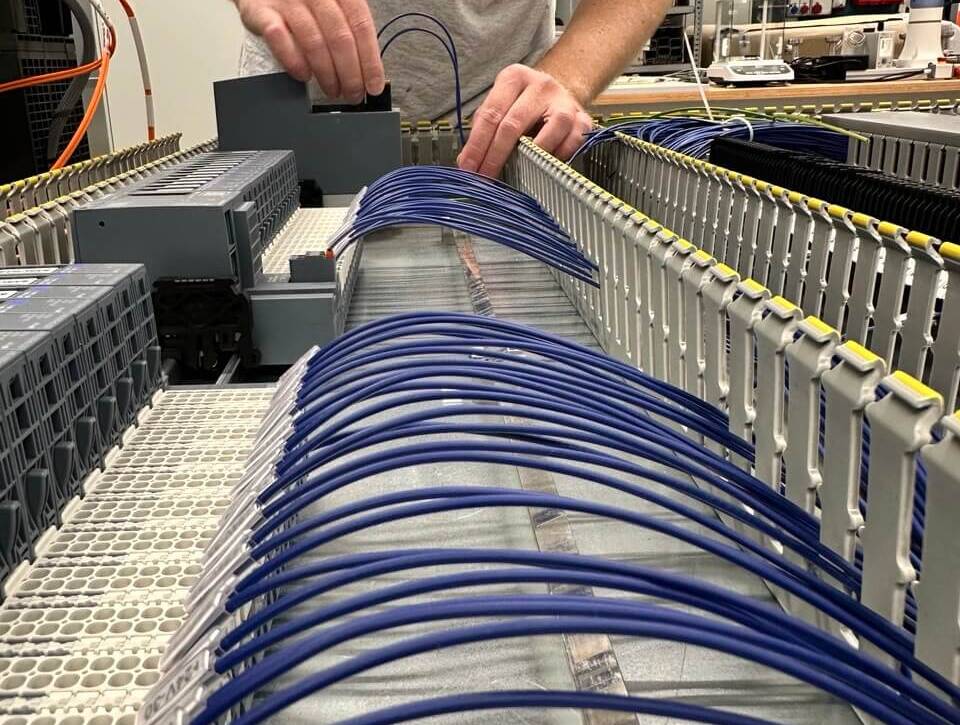Advanced Electrical Design for Industrial Automation Systems

Tailor-Made Electrical Design Solutions for Industrial Automation
Electrical design is a crucial phase in industrial automation, essential for ensuring the correct operation of systems and operational safety. It is a complex process that includes the development of electrical schematics, the selection of components, and integration with control and supervision systems. The main objective of electrical design is to develop efficient, reliable, and safe solutions, ensuring operational continuity and compliance with current regulations.
Main Types of Electrical Design for Industrial Automation Systems
- Electrical Panel Design
Design and construction of distribution and automation panels, with customized configurations for every production requirement. - Electrical Distribution Systems
Design of electrical networks for the safe and efficient distribution of energy within industrial facilities. - Industrial Wiring
Design and implementation of wiring for connecting machinery and systems, ensuring reliability and organized installation. - Grounding System Design
Design of protection systems to ensure plant and operator safety, in compliance with international standards. - Integration with Automation Systems
Development of integrated solutions that connect electrical design with control and supervision systems, improving operational efficiency.
Benefits of Advanced Electrical Design
Operational Efficiency – Optimizes energy consumption and reduces downtime.
Reliability and Safety – Design compliant with regulations, minimizing the risk of failures and malfunctions.
Flexibility – Customized solutions to meet the specific needs of each facility.
Complete Integration – Seamless connection between the electrical system and automation platforms.
Operational Risk Reduction
Implementing advanced control systems reduces risks related to:
Design Errors – A well-designed system minimizes the likelihood of malfunctions.
Electrical Failures – Solutions engineered to prevent overloads and short circuits.
Operational Safety – Design compliant with safety standards to protect operators and machinery.
Tailored Electrical Design Solutions for Industrial Automation
Opus Automazione offers comprehensive electrical design solutions, developed according to each customer’s specific needs. From initial consulting to project implementation and system start-up, we ensure reliability, efficiency, and full regulatory compliance.
Rely on us to deliver state-of-the-art electrical systems designed to enhance production efficiency and ensure the safety of your industrial processes.
What Our Service Includes
We take care of everything, from A to Z
We have designed our entire service process to ensure maximum simplicity, allowing our clients to fully focus on other strategic aspects of their business while we handle everything else.
Analysis and Feasibility Study
Design and Technical Development
Construction & Assembly
Testing, Validation, and Start-Up
Installation and Training
Contact Us for a Tailored Quote
Customized solutions for the specific needs of your industry.
Our experts are ready to support you.
Tailor-made solutions for every industrial sector
Dedicated consulting for every phase of the project
Specialized and continuous technical support
Technological innovation to improve operational efficiency
